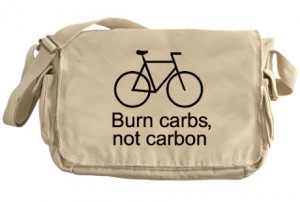Every girl’s guide to eating on a ride…
 Here’s the second guest blog post from sports dietician Rebecca Hay from The Athlete’s Kitchen. Rebecca kindly volunteered to write a few blog posts for WWC and here’s her second contribution about what to take on board during a ride………
Here’s the second guest blog post from sports dietician Rebecca Hay from The Athlete’s Kitchen. Rebecca kindly volunteered to write a few blog posts for WWC and here’s her second contribution about what to take on board during a ride………
The length and intensity of a ride dictates how much and what you might decide to take with you on a bike ride. There is a lot of information in magazines and the internet about how to meet needs. Many cyclists choose to consume water only on their rides. For a short, moderate paced ride this may be enough. When the intensity kicks up though it is time to start thinking about adding some carbohydrate to top up muscle fuel.
Basics – muscles will use glycogen for fuel. Glycogen is stored in our muscles and liver. We have enough stored in our muscles for ~90min of moderate intensity activity.
What does protein do? Protein is what your muscles are made of – so we do not want to to use protein as a fuel as it means we dipping into our muscle tissue for fuel. Taking on a small amount of protein while exercising may help extend the length of time to exhaustion…but won’t necessarily make you go faster. It can slow down the movement of food from you gut as well which means you get the energy from that food more gradually. Great tip for day to day eating but not so efficient while exercising at a high intensity.
How much? Recommendations of 30-60g of carbohydrate per hour will meet most ride needs. For those going at a high intensity, for over 2½ hours, up to 90g per hour can be beneficial – at the level the sources of carbohydrates need to be considered as our gut can really only comfortably take on board ~60-70g of glucose each hour.
Commercial gels, bars and sports drinks are easy options for ride fuel due to portability and convenience. If you have the inclination you may choose to make your own foods to take with you. Nothing wrong with a vegemite/jam/honey or peanut butter sandwich. You can make your own “portable fuels” with you as well. I often recommend a book called “The Feed Zone – Portables” by Allen Lim and Bijou Thomas. Benefit here is they are tried and tested and have nutritional break down available.
You can contact Rebecca via her website.
